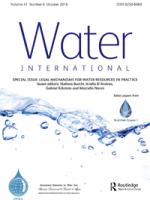Water rights formalisation introduces a new dimension of inequality
Secure and legally sanctioned access to water is gaining significance to farmers to cushion themselves against climate change and to participate in markets that are increasingly concerned with social and environmental responsibility. Nicaragua is among the countries which recently has introduced a new water rights regime as part of its water governance reform.
The article analyses the extent to which the reform and the associated formalisation of water rights have succeeded in providing water security for all. The article argues that due to selective and partial implementation, the water governance reform could lead to the concentration of enforceable water rights in the hands of the few.
The article is based on research which was conducted as part of the programme Territorial Cohesion for Development, coordinated by Rimisp (Latin American Center for Rural Development), Chile, and funded by the International Development Research Center (IDRC), Canada. An earlier version of the article was presented at the XVI World Water Congress, held in Edinburgh. The article is available as open access, provided jointly by Rimisp and DIIS.
DIIS Eksperter

